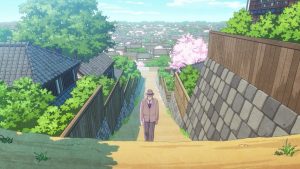 The last preview of the season (among real hopefuls, anyway) for me is Kitsutsuki Tanteidokoro. I’ve gone through a couple of mindset swings on this – initial indifference, then a bit of a rising of the sap (it was actually one of my two sleeper picks, along with Yesterday o Utatte). When I saw the initial numbers for the premiere (which I normally try and avoid before first viewing) were mediocre at best I grew concerned for a beat or two, but then realized that pretty much every show of this stripe winds up generally low-rated and almost totally ignored.
The last preview of the season (among real hopefuls, anyway) for me is Kitsutsuki Tanteidokoro. I’ve gone through a couple of mindset swings on this – initial indifference, then a bit of a rising of the sap (it was actually one of my two sleeper picks, along with Yesterday o Utatte). When I saw the initial numbers for the premiere (which I normally try and avoid before first viewing) were mediocre at best I grew concerned for a beat or two, but then realized that pretty much every show of this stripe winds up generally low-rated and almost totally ignored.
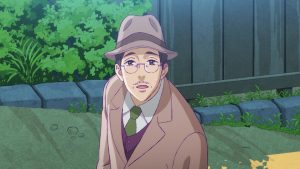 The long and short of it is, I quite liked Woodpecker Detective’s Office – which ends up not surprising me a whole lot. You know the drill with these sorts of shows – I like to find one every season. Houseikishou, Maynonaga, Youkai Apato, Kyoto Teramachi Sanjou no Holmes – the list goes on and on, and Kitsutsuki checks all the boxes. It’s literate, it’s low-budget, it’s relaxing and it’s certain to be a commercial flop. It features Sakurai Takahiro, who’s legally required to appear in this sort of series (and Tsuda Kenjirou, who’s legally required to be in every series). Bazinga.
The long and short of it is, I quite liked Woodpecker Detective’s Office – which ends up not surprising me a whole lot. You know the drill with these sorts of shows – I like to find one every season. Houseikishou, Maynonaga, Youkai Apato, Kyoto Teramachi Sanjou no Holmes – the list goes on and on, and Kitsutsuki checks all the boxes. It’s literate, it’s low-budget, it’s relaxing and it’s certain to be a commercial flop. It features Sakurai Takahiro, who’s legally required to appear in this sort of series (and Tsuda Kenjirou, who’s legally required to be in every series). Bazinga.
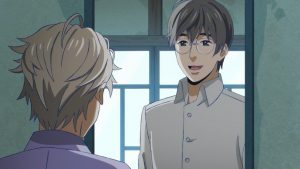 Kitsutsuki Tanteidokoro is based on a 1999 novel by Li Kei, one which doesn’t seem to be especially well-known as far as I can tell. The main characters are based on real people – Sakurai’s linguist Kindaichi Kyousuke, and slightly younger poet Ishikawa Takuboku (Asanuma Shintarou) – though the scenario is presumably almost pure fiction. In fact the story begins with a flash forward as an older Kindaichi recalls his best friend Ishikawa, who’s been dead for 10 years, and visits the boarding house in Tokyo where they lived as young emigres from Hokkaido. It’s clear that Kindaichi loved Ishikawa – the exact nature of that love is perhaps still to be determined.
Kitsutsuki Tanteidokoro is based on a 1999 novel by Li Kei, one which doesn’t seem to be especially well-known as far as I can tell. The main characters are based on real people – Sakurai’s linguist Kindaichi Kyousuke, and slightly younger poet Ishikawa Takuboku (Asanuma Shintarou) – though the scenario is presumably almost pure fiction. In fact the story begins with a flash forward as an older Kindaichi recalls his best friend Ishikawa, who’s been dead for 10 years, and visits the boarding house in Tokyo where they lived as young emigres from Hokkaido. It’s clear that Kindaichi loved Ishikawa – the exact nature of that love is perhaps still to be determined.
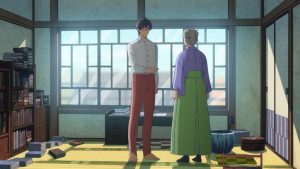 The meat of the story takes place in that earlier time, 1909 to be exact. The contrast between these two young men could hardly be more stark. Though both are aspiring poets Ishikawa is blessed with the gift, while Kindaichi is not. Ishikawa is bold and dashing (if a bit awkward as geniuses can be), totally fearless, while Kindaichi is anxious and shy. The pattern we see play out in this first case – Ishikawa dragging a reluctant Kindaichi along on a wild ride he wouldn’t miss for the world – is one I suspect is likely to be repeated.
The meat of the story takes place in that earlier time, 1909 to be exact. The contrast between these two young men could hardly be more stark. Though both are aspiring poets Ishikawa is blessed with the gift, while Kindaichi is not. Ishikawa is bold and dashing (if a bit awkward as geniuses can be), totally fearless, while Kindaichi is anxious and shy. The pattern we see play out in this first case – Ishikawa dragging a reluctant Kindaichi along on a wild ride he wouldn’t miss for the world – is one I suspect is likely to be repeated.
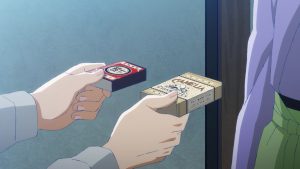 That case involves a murder in the pleasure quarter which Ishikawa becomes aware of through a chance encounter with a patron in a hurry to leave. The mystery here is fine, though its main function is really to introduce us to the two protagonists. Ishikawa is indeed a deductive genius, almost Holmesian in nature. But his gift for the practical is non-existent – he seems to have no source of income and continually relies on his friend to bail him out of difficulties up to and including eviction from the boarding house. Kindaichi averts this only by selling his collection of books. It’s a hopeful sign that Ishikawa was visibly moved by this sacrifice – at the very least, he understands just how much Kindaichi cares about him and regrets putting him through so much trouble.
That case involves a murder in the pleasure quarter which Ishikawa becomes aware of through a chance encounter with a patron in a hurry to leave. The mystery here is fine, though its main function is really to introduce us to the two protagonists. Ishikawa is indeed a deductive genius, almost Holmesian in nature. But his gift for the practical is non-existent – he seems to have no source of income and continually relies on his friend to bail him out of difficulties up to and including eviction from the boarding house. Kindaichi averts this only by selling his collection of books. It’s a hopeful sign that Ishikawa was visibly moved by this sacrifice – at the very least, he understands just how much Kindaichi cares about him and regrets putting him through so much trouble.
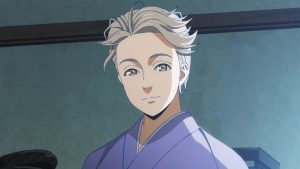 In point of fact, Ishikawa starts the titular Kitsutsuki Tanteidokoro seemingly as a means to gain a little financial stability. Kindaichi had half-jokingly suggested the meitantei trade for Ishikawa, but the latter justifies this turn by conflating the nature of the detective with that of the poet. There’s not much flashy about any of this – there rarely is with this kind of series – but it all kind of works for me. The atmosphere and setting are interesting, and so is the chemistry between the leads. Writer Kishimoto Taku is generally a very sure hand with this sort of material and while the production is low-budget, the look of the series is quite attractive (as is the music). Maybe Kitsutsuki Tanteidokoro will indeed be this season’s really good show that nobody watches…
In point of fact, Ishikawa starts the titular Kitsutsuki Tanteidokoro seemingly as a means to gain a little financial stability. Kindaichi had half-jokingly suggested the meitantei trade for Ishikawa, but the latter justifies this turn by conflating the nature of the detective with that of the poet. There’s not much flashy about any of this – there rarely is with this kind of series – but it all kind of works for me. The atmosphere and setting are interesting, and so is the chemistry between the leads. Writer Kishimoto Taku is generally a very sure hand with this sort of material and while the production is low-budget, the look of the series is quite attractive (as is the music). Maybe Kitsutsuki Tanteidokoro will indeed be this season’s really good show that nobody watches…


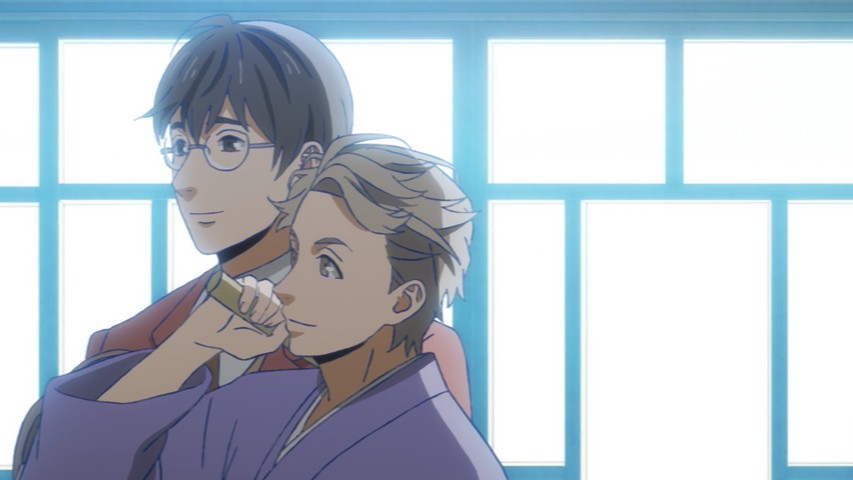
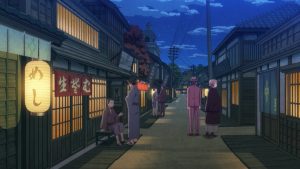
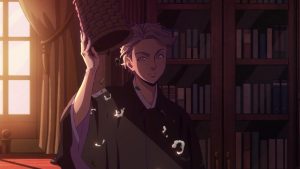
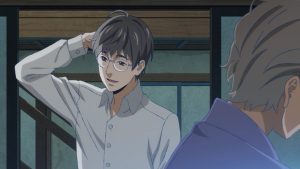
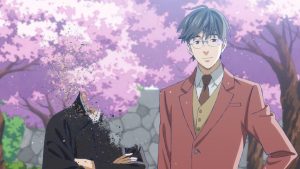
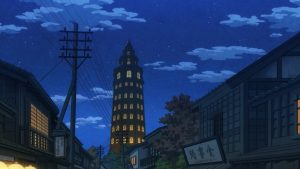
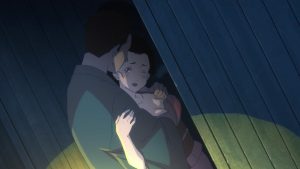
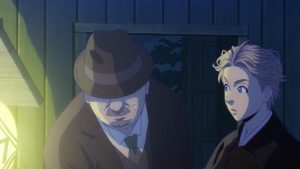
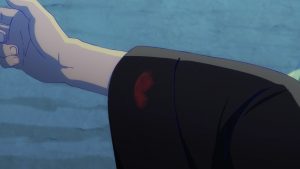
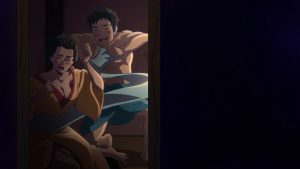
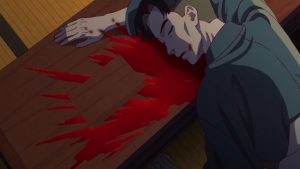
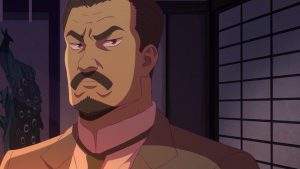
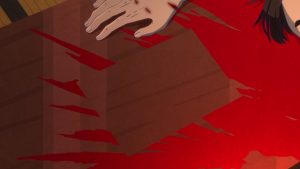
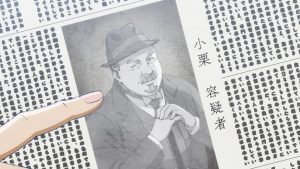

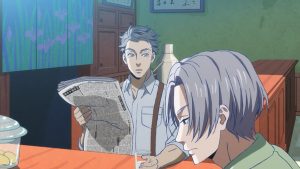
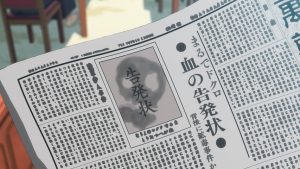
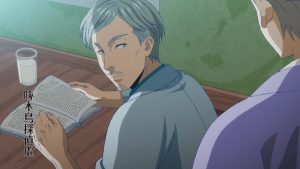

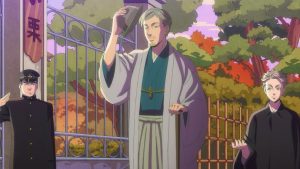
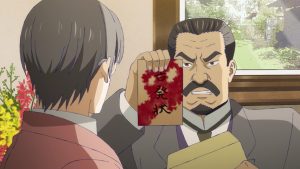

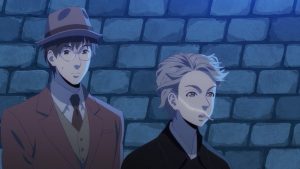
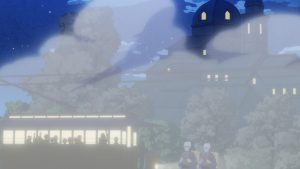
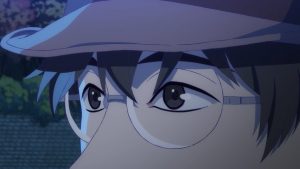
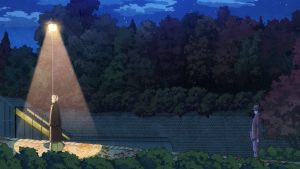
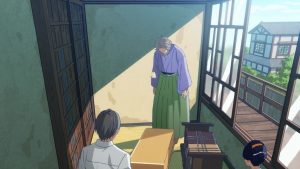
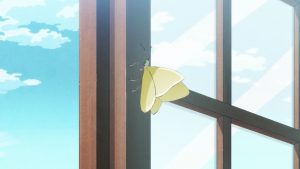
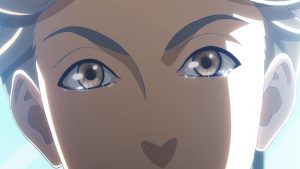


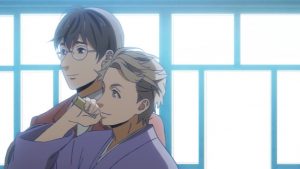
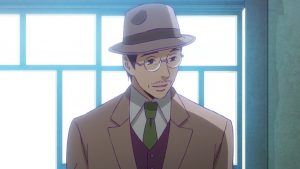
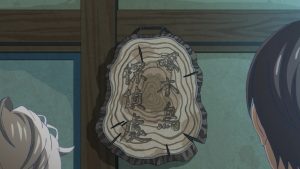
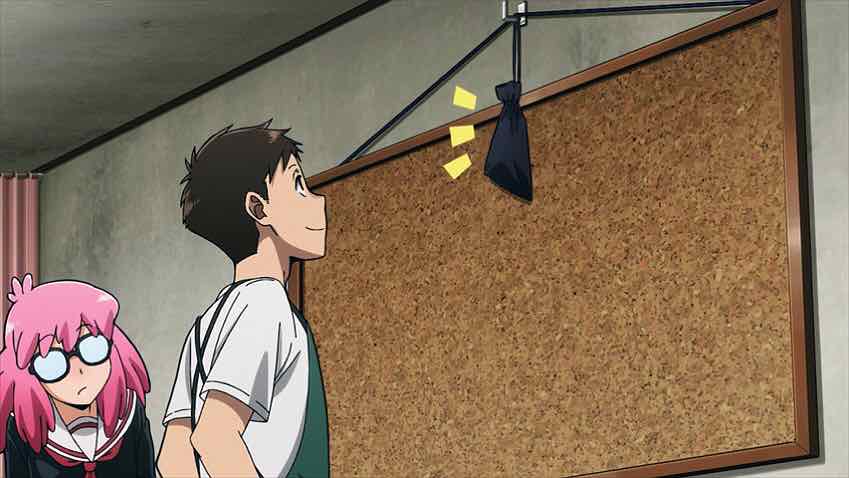
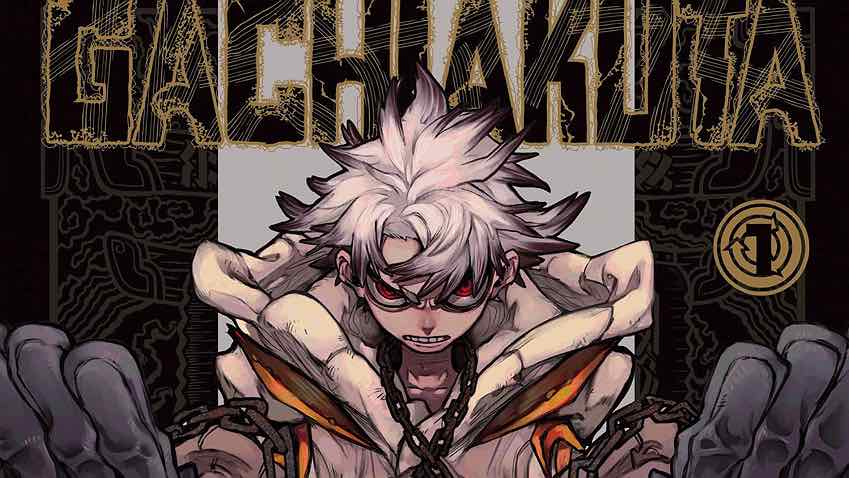
Collectr
April 15, 2020 at 4:18 amYeah, another keeper for those of us who like character-driven anime drama. The mystery element is a bit better formed (at least for this episode) than in Housekishou Richard-shi, even though it’s left unresolved. However, the characters are the real center of interest.
Sakurai Takahiro is typecast as the reserved member of the lead duo (as he was in Richard-shi). Perhaps he’ll get to show his comedic chops again someday, as he did in Shirokuma Cafe.
Guardian Enzo
April 15, 2020 at 7:38 amIf you want that Sakurai, watch the recently-completed Boku no Tonari ni Ankoku Hakaishin ga Imasu.. It’s generally underrated but Sakurai is in full screwball comedy mode. For me, though, the clear standout of the cast is Kimura Ryouhei, who absolutely murders the troll role.
Kim
April 15, 2020 at 8:20 amThe mystery wasn’t very impressive but have to say overall I enjoyed this more than the Millionaire Detective. The setting was probably my favorite aspect
Guardian Enzo
April 15, 2020 at 9:48 amI would say the same. It wasn’t as flashy of self-consciously “artsy” and cool, but I found this premiere to be the more engaging of the two.
Say
April 15, 2020 at 5:17 pmInteresting! I’ll check it.
Color2413
April 15, 2020 at 5:22 pmI generally agree with the positive comments here. The interesting, developing protagonists are far outside of today’s anime norms and this series is clearly aimed at grown-ups. My main reservation is how to justify this being an animated show other than to save budget on backgrounds compared to a live-action series that would have to recreate the era, an expensive undertaking given that it’s set more than 100 years ago.
The mystery itself wasn’t a big deal, but I think that atmosphere and characters are the central part of this anime.
Bel
April 15, 2020 at 10:58 pmBecause the target audience for the anime would be somewhat different from the target audience for a live action series? I know there are people who are interested in the series mainly because of the voice actors involved. There’s also the whole production committee thing going on. If I remember correctly, this anime has something to do with “Kimikoe Audition”, an audition for aspiring voice actors, where the winner gets to play a part in Kitsutsuki Tanteidokoro, as well as a contract with a voice acting agency.
Guardian Enzo
April 15, 2020 at 11:03 pmThat’s true, though how much of a factor that promotion is financially I really don’t know.
Yukie
April 15, 2020 at 11:58 pmThis turned out much better animated and more interesting than I expected. Anime that repurpose historical names as characters often turn out quite iffy, but I quite enjoyed how well they blended in the time period as well. The color palette of the whole show is also quite different.
DrD
May 22, 2020 at 5:18 pmWhat’s Maynonaga?
Guardian Enzo
May 22, 2020 at 5:33 pmhttps://www.animenewsnetwork.com/encyclopedia/anime.php?id=21190